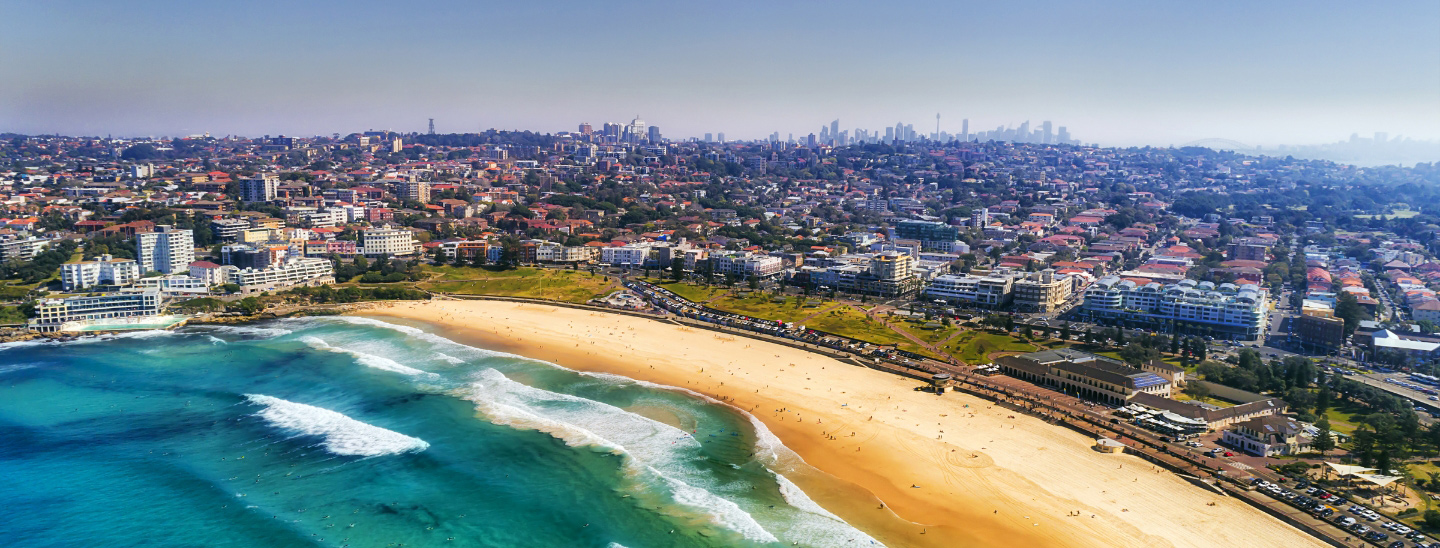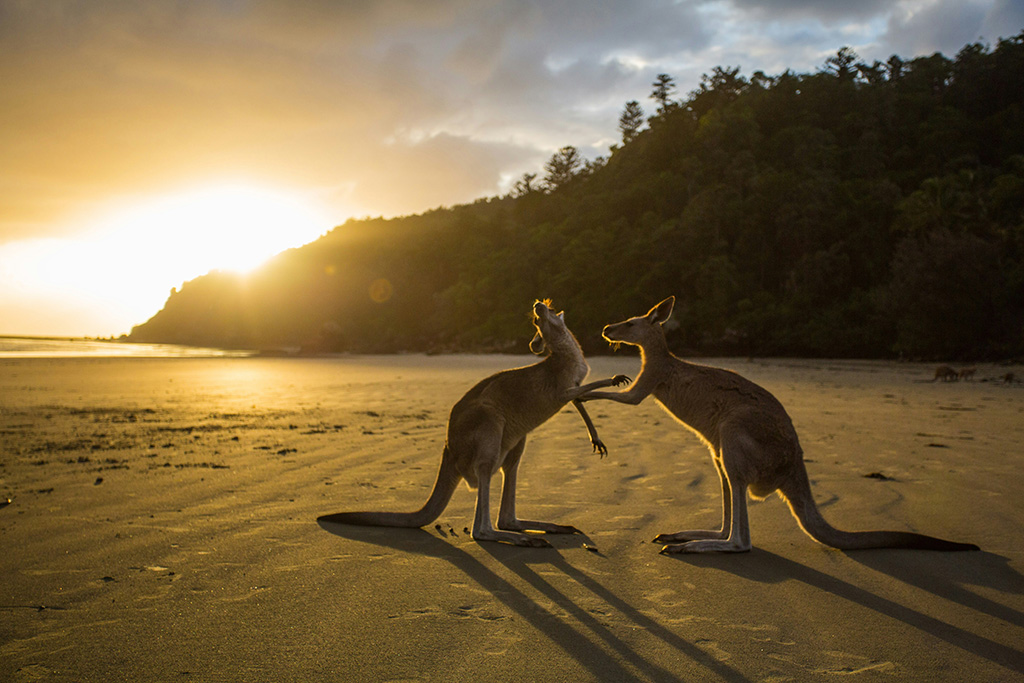
All about Australia

All about Australia
The land down under is beautiful, multicultural and diverse. Learn more about its culture, climate and wildlife here.
Australia’s climate
Yes, it can get hot!
Australia has a wide range of climates due to its vast size. From the tropical weather in the northern regions to arid desert conditions in the central parts, and the cooler temperatures in the southern areas, the country offers a unique variety of weather patterns.
Sydney experiences mild winters and warm summers. The city enjoys a temperate climate with average temperatures ranging from 8°C (46°F) in winter to 26°C (79°F) in summer. In summer it can get hot and it’s easy to get sunburnt. It’s important you protect yourself by wearing high SPF sunscreen and wearing sun-smart clothing including a hat, sunglasses and sunscreen.
Melbourne has four seasons – summer (December to February), autumn (March to May), winter (June to August) and spring (September to November). Average temperatures range from 7°C (44°F) in winter to 26°C (79°F) in summer, creating a mild environment that allows for outdoor activities year-round. October brings the highest rainfall, with an average of 66mm throughout the month.
Australian culture
We’re proud to be a safe and welcoming country
Being such a culturally diverse nation, there is really no such thing as a typical Australian. Still, you might face a whole range of social habits and customs that are different to back home.
Finding out as much as you can about Australian culture will help make your transition easier and more comfortable.
Equality and fairness is very important to Australians. Our culture is known for its lack of class distinctions. Equal opportunity and a fair go for everyone regardless of gender, religion, nationality, disability or sexual preference is considered a fundamental right.
Australians tend to be very friendly, although there are a couple of useful things to remember: When meeting people for the first time it is customary to shake with your right hand and look people directly in the eye. It is also expected that people say ‘please’ if you are asking for something and ‘thank you’ if you are receiving something.
Punctuality is also expected in Australia. If you have appointments, interviews and commitments at school, it’s vital that you are on time. On the occasion that you will be late or unable to make an agreed time, it’s important to ring ahead.
Australia is a very multicultural society. Australians are used to being amongst many different cultures, so never be afraid to ask questions. One of the best ways to immerse yourself in Australian customs and culture is to get out, meet new people and mix with as many locals as you can find.
Australian language
Become fluent in Australian slang
As you know, English is the official language in Australia, but there are many phrases, expressions and idioms that are uniquely Australian.
Australians love to use slang, create nicknames and shorten words. In fact, Aussie slang is known all over the world. It can be confusing for people for whom English is a second language but trust us, you will get used to it and in the end it will become fun to use yourself.
Aussies are very proud of the ‘Australian’ version of English. They love humour, love to tease each other and love sarcasm. Soon enough, you’ll be enjoying ‘snags’ on the ‘barbie’ one ‘arvo’ – deadset!
Australian wildlife
Australia has some of the most interesting wildlife in the world
It wouldn’t be an ‘About Australia page’ without including our unique wildlife. From deadly snakes, to cuddly koalas and everything in between.
Australia has some excellent zoos where you can come face-to-face with many of the country’s most fascinating creatures. Or, you can explore our many national parks and sanctuaries and if you’re lucky, spot them in their natural habitat.
Many of our native animals such as the platypus, koalas, kangaroos and emus are unique to Australia. We are home to more than 800 species of birds, 4000 fish species and 50 types of marine animals.
Exploring the animals of Australia should be a must-do item on your tourist agenda.
